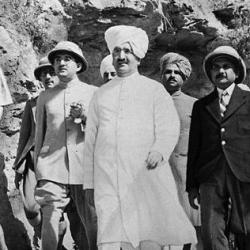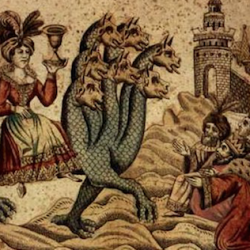In her God Needs No Passport (89-90), Peggy Levitt reviews some of the recent discussions of cosmopolitanism – from luminaries like Kwame Anthony Appiah, Martha Nussbaum, Amartya Sen. Levitt discovers one notable absence in all of them: Religion plays almost no role.
And that absence is due, she argues, to the assumption that religion is inherently parochial, rural, closed: “Faith communities have rarely been seen as instances of cosmopolitanism, or as inspiring their members to look beyond their own club. Religion is equated with parochialism and particularism.”
The evidence suggests otherwise: “In their heydays, medieval and premedieval Arabic and Muslim empires brought together many peoples and cultures, producing thriving artistic, literary, and commercial communities. The streets of Cairo and Istanbul were well known for their pan-Islamic and Masonic enclaves of cafes, lodges, and salons. And we don’t have to look only to the history books. The Baha’i tradition is based entirely on cosmopolitan ideals, as are movement as disparate as the Jesuits and Swadhyaya.”
In the fact of this, “political theorists from John Stuart Mill to Ernest Gellner summarily concluded that religious allegiances would only lead to absolutism and intolerance. But if nationalism and patriotism sometimes function as springboards to a humanitarian embrace, why can’t religion do the same?”
Levitt’s point is especially relevant in our age of “globalization.” Ignoring the international and transnational character of religious institutions and networks, social scientists miss one of the crucial conduits of globalization. As elsewhere, religious prejudice – often enough born of ignorance – makes for bad science.















